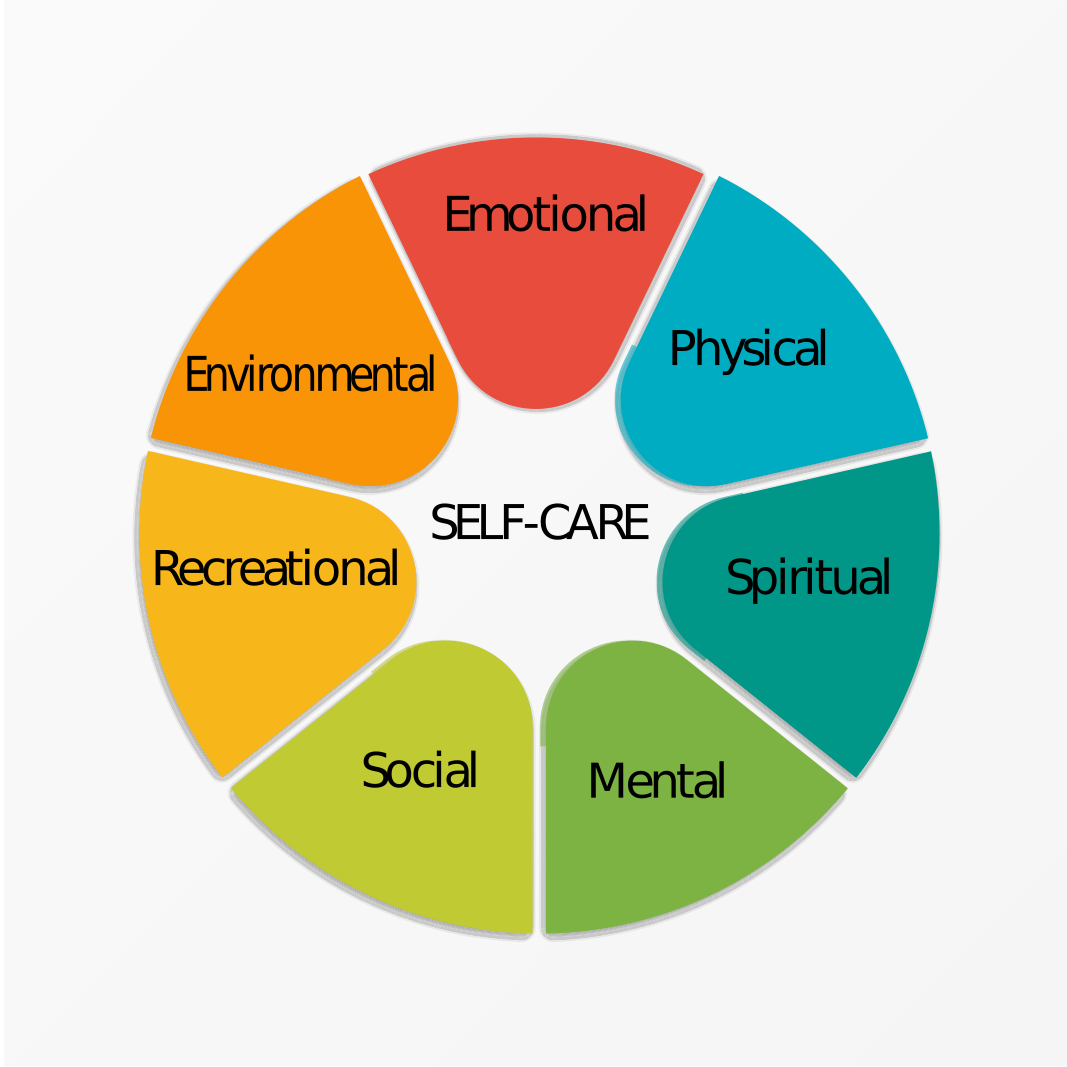Self-care is defined as the process of taking care of oneself with the actions we take daily, 24 hrs a day, 7 days a week, to maintain health, treat minor conditions, and manage chronic disease. This includes regular check-ups at the doctor, strengthening mental health, making the right food choices, exercise, sleep, dental care, talking to friends or relatives and our overall lifestyle habits.
Let’s discuss each pillar in detail…..
Emotional Self-Care
Activities and habits that allow us to connect, process, and reflect on our emotions.
Examples:
- Playing music
- Meditation
- Journaling and writing positive affirmations
- Talking to a therapist
Mental Self-Care
Activities and habits that stimulate your mind and practicing mindfulness.
Examples:
- Journaling
- Massage
- Meditation
- Reading
- Solving a puzzle
- Playing chess or any mind stimulating game
- Taking a break from technology
- Practicing self-awareness
Environmental Self-Care
Taking care of the space around you, such as your home and office. Practicing good hygiene to reduce your risk of getting sick and to protect those around you.
Examples:
- Cleaning up after a meal
- Decluttering
- Re-arranging your workspace
- Brushing your teeth daily
- Staying home when sick
- Thoroughly washing hands
- Coughing/sneezing into your elbow
Physical Self-Care
Activities and habits that help you nurture your body. Being responsible with our actions and behaviors to reduce the risk of injury or death.
Examples:
- Sleeping 7-8 hours a day
- Exercising
- Drinking at least 8 ounces of water a day
- Going for a walk
- Eating 3 meals a day and not skipping meals
- Wearing a helmet when riding a bike
- Quit smoking
- Practicing safe sex
- Getting the necessary vaccines
- Drinking alcohol only in moderation
- Wearing a seatbelt
Spiritual Self-Care
Activities and practices that nurture your soul and your spirit. These activities don’t necessarily have to be religious, although for most people they often are.
Examples:
- Meditation
- Going to a place of worship
- Volunteering
- Yoga
- Spending time connecting with nature
- Self-reflection
Recreational Self-Care
Taking the time to explore and enjoy hobbies, interests, and experiences. This allows you to have fun, and distracts you from any stressors in life.
Examples:
- Engaging in creative activities like art, writing, and crafts
- Going on a trip or adventure
- Discovering a new experience, like scuba diving!
Social Self-Care
Activities or habits that build, nurture, and deepen relationships with other people while maintaining healthy boundaries.
Examples:
- Going out with friends or hosting a game night
- Joining an online group/community and chatting on a regular basis
- Joining a local support group
- Calling a friend or relative
- Spending time with relatives
- Going out on a date
To some, these lifestyle habits may be challenging, but any small step in the right direction will help you reach your goals to better wellness. Believe in yourself and you can accomplish anything!!



